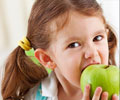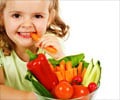Children from homes facing food insecurity show poor maths and social skills during kindergarten.
- A research team from University of Virginia ad George Town University highlighted the importance of good quality and quantity of nutrition among children below 5 years.
- Poor nutrition leads to poor outcome during kindergarten learning
- Children from food insecure homes fared worse than children from homes with sufficient food.
- When the episodes of food insecurity were greater, the academic performance nose dived
Timing of Food Insecurity
Food insecurity might not be a welcome condition, however, the timing when it occurs is vital in child development, according to the assistant professor of psychology at Georgetown University, Dr. Anna Johnson, who led the research. The study showed that:- Food insecurity that existed when the child was in its infancy or during toddlerhood indicated reduced cognitive ability as well as social-emotional skills during kindergarten.
- Cognitive and socio-emotional skills were essential indicators of success during the later stages of life.
- The association between food insecurity and kindergarten performance was negative, according to Dr. Johnson.
Apart from the stage at which there is food insecurity, the study found an association with the number of times the child was exposed to food insecurity. The research team identified three different stages at which there was an association between food insecurity and kindergarten performance
- When the child was 9 months old
- When the child was 2 years old
- When the child was about 4 years old.
- More the number of episodes of food insecurity, which constitute more than 3 episodes of food insecurity, lower the kindergarten performance.
Child Development during Kindergarten
The study was carried out to determine the development of the child during the first 5 years, associating it with social-emotional, cognitive skills and behavior during the start of kindergarten. The study was based on data from the Early Childhood Longitudinal Study-Birth Cohort and analyzed the outcome of children from 3,700 low-income households in the study population. The study involved understanding the association between the duration and the timing of food intensity on a child’s ability in math, reading skills as well as on the social-emotional ability during the start of kindergarten.The study was initiated when the child was 9 months old, when parents and the child were assessed. The assessment as repeated again when the child was 1,4 and 5 years old, focusing on the reading and math ability. The children were also tested for their ability to conduct problems, levels of hyperactivity as well as their way of learning.
This study provides an understanding of the association between skills at the start of kindergarten and food insecurity. The research team involved in the study, however, cautions that the results of the study are non-causal and that there could be another factor which could have been missed in the study.
Food Insecurity and Academic Performance
In a study conducted by Diana F. Jyoti and colleagues from Cornell University, titled “Food Insecurity Affects School Children’s Academic Performance, Weight Gain, and Social Skills” and published in the Journal of Nutrition, longitudinal data was used to investigate how food insecurity was associated with patterns in reading and mathematics test performance, BMI and social skills among children. The study was based on data from the ‘Early Childhood Longitudinal Study-Kindergarten Cohort’, where an estimated 21,000 nationally representative children joining kindergarten were analyzed up till their 3rd standard. In this study, it was shown that food insecurity was predictive of below average developmental trajectories among children. This is, therefore, an important marker of how a child would fare in terms of development. The study provided one of the earliest and a strong support about food insecurity and its association with developmental consequences among children.References:
- Food Insecurity Affects School Children’s Academic Performance, Weight Gain, and Social Skills - (http://jn.nutrition.org/content/135/12/2831.full)
















